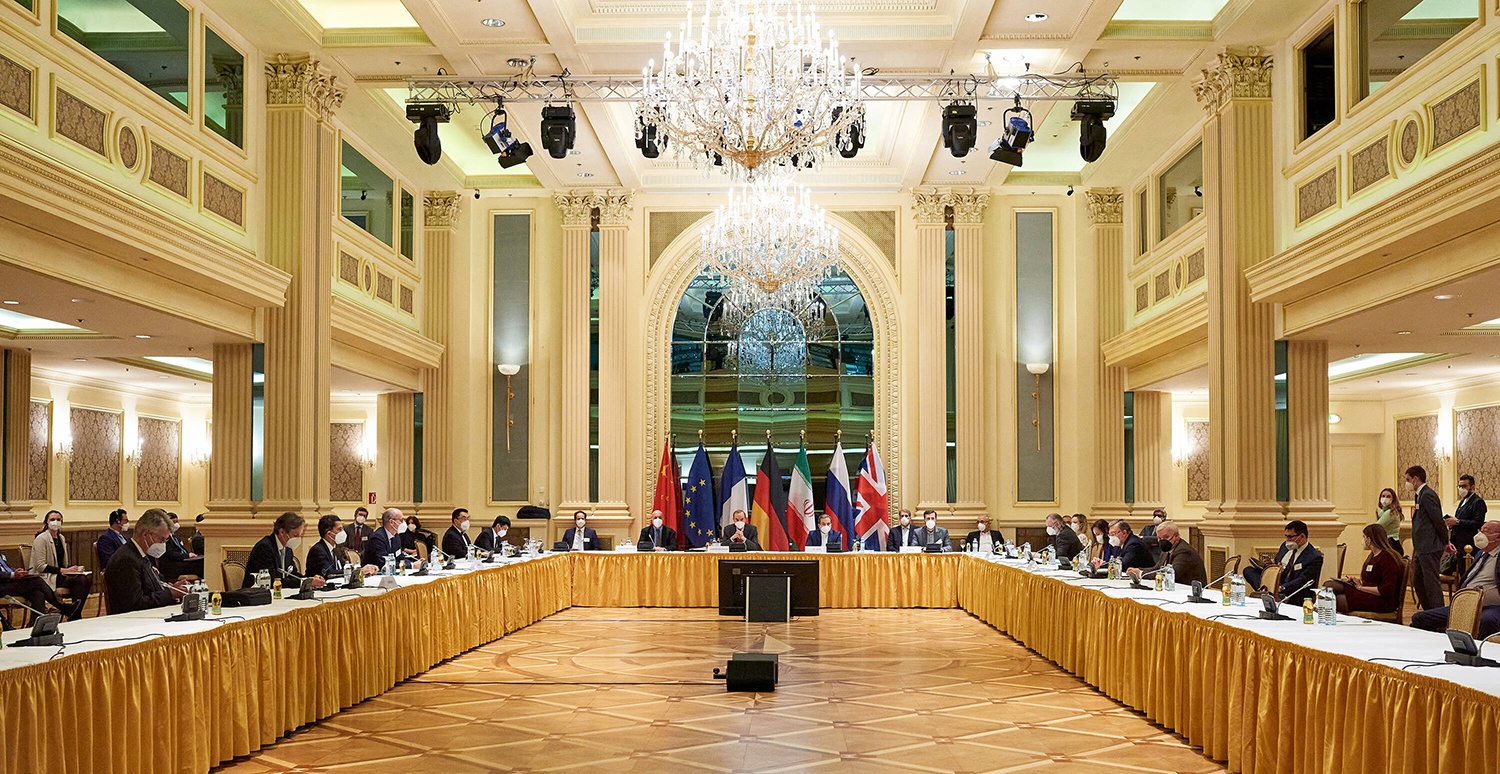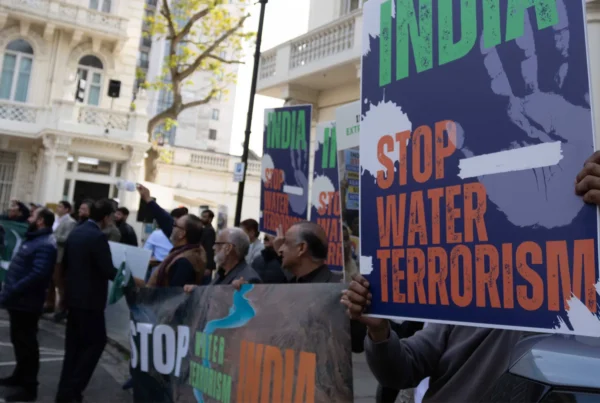The JCPOA Joint Commission resumed its talks in Vienna, Austria. These negotiations might be the final opportunity to revive the Iran nuclear dear. All those involved have continued to negotiate despite third parties inside and outside of Iran trying to derail the talks. The future of peace and stability in the region is on the line.
By Prof. Dr. Heinz Gärtner 28.4.2021
The Iran nuclear agreement, known as the “Joint Comprehensive Plan of Action” (JCPOA), is the best negotiated arms control agreement in history. It contains a comprehensive verification system and is a permanent agreement. Its preamble requires that Iran never acquire nuclear weapons. The agreement is based on international law, as it is enshrined in Resolution 2231 of the UN-Security Council. Some provisions that limit Iran’s nuclear program (such as uranium enrichment or the number of centrifuges) would expire after 15 to 30 years. When US President Donald Trump withdrew from the agreement in 2018, he not only did enormous damage to stability in the Middle East but also violated international law. Iran abided by the agreement until a year after the US withdrawal, before it began a step-wise withdrawal from its JCPOA obligations.
Talks on how to revive the JCPOA resumed in Vienna at the beginning of April 2021. They are taking place within the framework of the “Joint Commission of the JCPOA”, which is chaired by the European Union. In addition to EU officials, representatives of Iran, Russia, China, France, Britain and Germany are involved in the talks. As the US is no longer party to the JCPOA, the US delegation is involved only indirectly.
Both sides, the US and Iran, started off with maximal positions. On the one hand, the US wants Iran to return to all its original commitments in the JCPOA before the US starts lifting sanctions. Iran, on the other hand, requested that the US lift all sanctions before it goes back to its commitments, because it was the US which violated the JCPOA in the first place. All the delegations soon found out that a rigid sequencing is not feasible and rejected it. Some observers suggested that the US should lift sanctions simultaneously, or step by step, with Iran’s return to its commitments.
During the process of the talks, three working groups have been established. One looks at the sanctions that are related to the JCPOA. This is complicated because the Trump administration labeled them with different titles (e.g. “terrorism” or “human rights”) to make it harder for any successor to remove them. Also, there are sanctions that were imposed on economic entities and activities while others were imposed on Iranian individuals. In addition, Iran wants the ending of the sanctions to be verified. The second group deals with Iran’s commitments to ensure that all technical requirements are met, which is also difficult since Iran has meanwhile installed more modern centrifuges than it had in 2015. The third group shall coordinate the results of the other working groups and identify practical arrangements to implement them.
Iran included in its delegation not only representatives of the Iranian Atomic Energy Agency but also experts of the Iranian Central Bank and members of the Petroleum Ministry. This is a clear indication that Iran has a list of priorities and has recognized that not all sanctions could be identified and removed at once. Iran wants access to the oil market und to be able to invoice its sales in petrodollars. It also wants to participate in SWIFT, the international financial settlement mechanism.
Another thorny issue is the question of which year should be the reference point to start the JCPOA again. Iran prefers 2017, before the heavy sanctions of the Trump administration kicked in. The US wishes to restart with 2015, because the provisions that limit Iran’s nuclear program, such as uranium enrichment or the number of centrifuges, would take longer to expire. At the end of April 2021 Iran proposed a draft agreement as a basis for further negotiations. Before being discussed with all delegations, several bilateral and multilateral meetings were held.
Failure would be catastrophic
There have been several attempts to disrupt the negotiations outside and inside Iran. There was the attack on Iran’s nuclear facilities in Natanz on 11 April, Iran’s announcement that it would enrich uranium to 60 percent, the leak of an interview where Foreign Minister Zarif said that he was not always on the same page as the Iranian Revolutionary Guards, before the talks resumed on 27 April after a break. The negotiations continued in spite of these attempts to derail them.
The talks in Vienna offer a window of opportunity similar to the one in 2015 when the JCPOA was adopted in Vienna. Then the presidents of Iran and the US, Rouhani and Obama, understood that it was a unique moment after more than a decade of failed attempts to come to an agreement. A clear sign of this urgency was that the negotiations were extended time and again for several weeks. There is a similar situation of urgency this time – and the EU, Rouhani and Biden are aware of this. Rouhani’s successor after the Iranian elections in June 2021 might not be as determined to re-start the JCPOA.
A failure of the Vienna negotiations would have far-reaching consequences. Iran would upgrade its nuclear program and come closer to a nuclear weapon capability. This would be enough “reason” for Israel to bomb Iran’s nuclear facilities. Israel would try to involve the US in this conflict, and it would be difficult for Biden to refuse this request. Iran would increasingly limit the room of maneuver of the IAEA inspectors and might even force them to leave. The IAEA would lose any possibility to know what the status of Iran’s nuclear program was. Iran could also threaten to or actually leave the Nonproliferation Treaty (NPT). Furthermore, Saudi Arabia would, as it announced already, develop its own nuclear weapons program. There have also been reports of its wishing to purchase a nuclear weapon from Pakistan, which is however unlikely.
There is no rational alternative to the JCPOA. The present Vienna negotiations on the JCPOA again offers an opportunity which should not be lost.
Picture: Meeting of the Joint Commission of the Joint Comprehensive Plan of Action (JCPOA) in Vienna, Austria, April 6, 2021. The JCPOA Joint Commission meeting, resumed here on Tuesday, was hailed by attending envoys as constructive and is expected to bring more hope for the revival of the Iran nuclear deal. With the lifting of sanctions on Iran and nuclear implementation measures at the top of the agenda, the meeting has drawn worldwide attention as delegates from the United States joined the talks to save the nuclear deal, which was struck in 2015 but paralyzed by the U.S. withdrawal in 2018. © imago-images.de /Xinhua
Other Articles Which Might Interest You
Time is Running out for Iran’s Nuclear Deal





